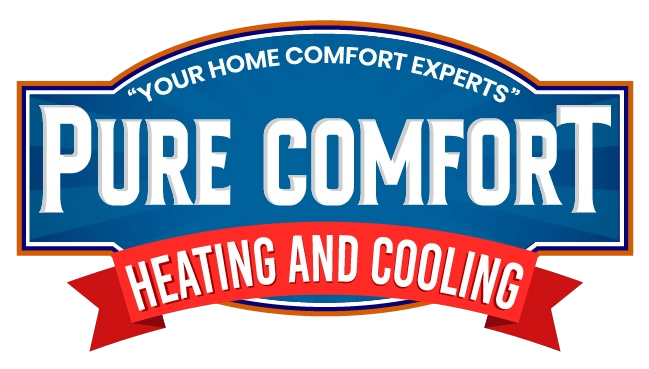Completing the search for your first home is an exhilarating experience. You’re probably juggling numerous details to ensure you’re making the right choice. We believe that understanding your future HVAC system is crucial. The property’s HVAC system represents a substantial investment and source of potential long-term costs, which is why due diligence is important for first-time homebuyers.
In this guide, we’ll share seven tips for discovering all there is to know about a home’s heating and cooling setup. And if you want a deeper opinion from the pros, consider calling Pure Comfort Heating and Air Conditioning. Our staff can share details about your options with industry insights that are second to none.
1. What HVAC System Are You Working With?
Start by determining what specific HVAC system the home has. Furnaces generally last longer compared to air conditioners, and relatively new types of HVAC systems like heat pumps boast average life spans longer than ever. Knowing the make and specific model provides a much better sense of how much it might cost in upkeep over time.
2. How Old Is the Current HVAC System?
Another good idea is to find out how old the HVAC system is when you’re looking at a new home. In general, HVAC systems should survive for around 10-12 years. Learning its approximate installation date helps you plan for possible repair needs or when it might shut down for good. Older systems are more prone to problems, so fiscal planning for a replacement unit might be needed faster than expected.
3. Is the Warranty Still in Effect?
Be sure to check the HVAC system is covered by a warranty. If it is, you’ll appreciate how it can help with maintenance costs. HVAC warranties often cover parts and labor, but the details in each policy will vary. Review any terms that seem confusing to ensure you understand your coverage and any possible out-of-pocket costs.
4. Has the System Ever Been Professionally Serviced or Maintained?
Don’t forget to check the maintenance history of the HVAC system, if such information is available. This kind of information can reveal if the system constantly broke down or how often a tune-up was scheduled. Inquire about key tasks such as changing the air filter, which is a positive sign indicating regularly scheduled tune-ups.
5. What Are the Energy Efficiency Ratings?
Finding a home that features an HVAC system with great energy efficiency means smaller utility bills and less of an impact on the environment. Locate the seasonal energy efficiency ratio (SEER) ratings for air conditioning along with the annual fuel utilization efficiency (AFUE) for furnaces. High SEER ratings mean more efficient cooling throughout the season, while higher AFUE ratings indicate that the fuel is more effectively burned for useable heat.
6. Did You See Any Problems After Completing an Informal Inspection?
Even without experience in HVAC systems, it’s still a good idea to inspect the HVAC system on your own. Watch closely for signs of problems that might have been overlooked. This includes strange noises, stubborn patches of the house that are too hot or cold and attempts to hide any visible damage.
7. Have You Sought Out Expert Advice?
If you’re not quite sure about the condition of the HVAC system, it’s beneficial to get an assessment and recommendation from trained HVAC technicians. They are skilled at identifying things you may not know about, like refrigerant leaks, wiring issues or flawed ductwork.
A Consultation with Pure Comfort Heating and Air Conditioning Helps Take the Stress Out of Your Home-Buying Journey
Selecting your first home ought to be exciting, and Pure Comfort Heating and Air Conditioning wants to ensure yours is too. Reach out with us at 630-313-2509. We can discuss how our HVAC services help make this process smoother, giving you what you need to make an offer with confidence.

